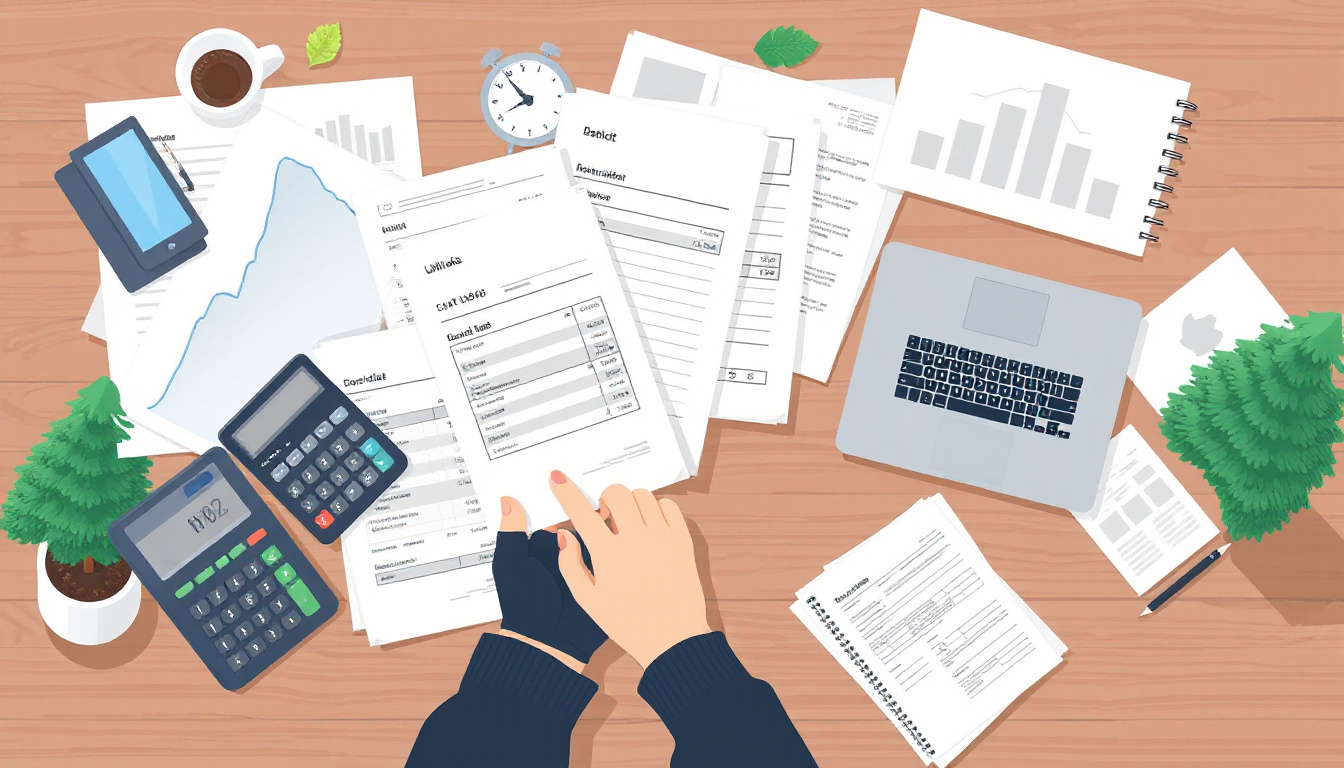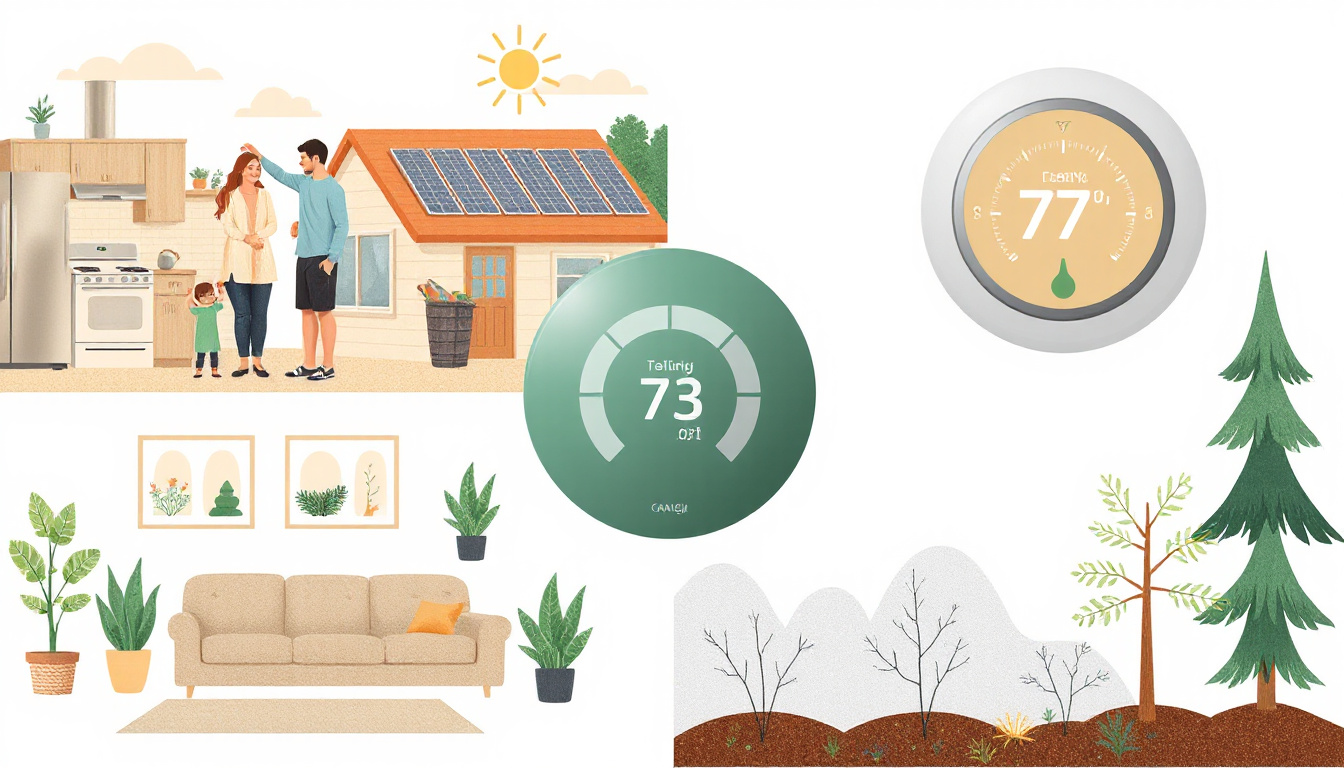Managing your finances can feel overwhelming, especially when juggling various bills and debts. One critical aspect that often gets overlooked is the role of utility bills in your overall debt management strategy. Utility bills, which include essential services like electricity, water, and heating, can significantly impact your ability to manage debt and maintain financial stability. In this article, we’ll delve into how utility bills factor into your debt management strategy, explore the consequences of unpaid utility bills, and provide actionable tips on managing these essential expenses efficiently.

Key Takeaways
- Utility bills are essential expenses that must be prioritized in your budget.
- High utility costs can significantly impact your overall debt levels.
- Reducing utility expenses can free up cash for debt repayment.
- Implementing strategies like energy efficiency can lower utility bills.
- Incorporating utility payments into your debt management plan helps ensure financial stability.
Understanding Utility Bills as Essential Expenses
When you’re developing a debt management strategy, understanding utility bills as essential expenses is crucial. Utility bills include costs for electricity, water, gas, and internet services, all of which are necessary for daily living. Monitoring and managing these expenses effectively can free up funds for debt repayment and help you avoid accumulating additional debt.
Firstly, assess your utility bills to determine how they fit into your overall budget. Are there areas where you can cut back? For instance, turning off lights when not in use, opting for energy-efficient appliances, or consolidating internet and phone services can lead to significant savings. Additionally, set reminders for payments to avoid late fees.
Consider working with financial advisors or debt relief specialists who can provide insights into creating a sustainable budget that accounts for utility bills. Incorporating these essential expenses into your debt management strategy makes it possible to keep necessary services while still focusing on reducing debt.
The Impact of Utility Bills on Overall Debt
Utilities are a fundamental part of our everyday lives, encompassing essential services such as electricity, water, heating, and gas. However, these bills can rapidly accumulate and significantly impact your overall debt. For many Canadians, utility expenses make up a substantial portion of monthly budgets, and failing to manage them effectively can lead to financial strain.
As you formulate your debt management strategy, it’s crucial to consider how utility bills factor into your overall expenses. High electricity costs can arise from inefficient appliances or excessive usage, while unforeseen repairs—such as a broken furnace in winter—can lead to unpredictable spikes in costs. Similarly, water bills can escalate due to leaks or high consumption without proper awareness.
If you’re already navigating debt, unpaid utility bills can further complicate matters. Neglecting these bills can result in late fees, higher interest rates, and even disconnections, adding to your financial woes. This is why including utilities in your debt management strategy is critical.
By keeping a close eye on your utility usage and expenses, you can identify areas for potential savings. Small changes, like adopting energy-efficient practices or negotiating better rates with providers, can significantly help reduce your monthly outgoings.
Incorporating utility management within your debt strategy allows for a more holistic approach to tackle your finances, ensuring you don’t just pay down debt but also maintain your essential services.
‘Budgeting isn’t about limiting yourself – it’s about making the things that excite you possible.’ – Unknown

Strategies for Managing Utility Costs
### The Importance of Utility Bills in Debt Management
Utility bills can significantly impact your overall financial health, and effectively managing them is crucial as part of your debt management strategy. First, understanding the components of your utility bills, such as electricity, water, heating, and the effects of seasonal changes, can help you identify where you could save money. For example, implementing energy-efficient appliances and smart thermostats can reduce electric bills and heating costs, respectively.
Second, you should consider monitoring your consumption. Keeping track of your utility usage can highlight areas where you may be over-consuming; for instance, you might notice that leaving lights on unnecessarily or excessive water use can lead to higher costs. This monitoring can be done using utility apps that many providers offer, helping you adjust your habits more easily.
Additionally, budgeting for your utility costs along with your other expenses can prevent them from becoming overwhelming and affecting your debt repayment plans. Allocate a specific amount for each utility based on past bills and pay close attention to any fluctuations. If you see an unexpected rise in costs, it may trigger a re-evaluation of your usage or a search for better rate plans.
Understanding your utility bills also means being aware of available assistance programs, particularly in Canada, where government support can alleviate some financial burdens, especially during peak winter months when heating costs can soar. Programs like LIEN (Low-Income Energy Network) can help you find resources tailored to your financial situation, ensuring that managing utility costs doesn’t derail your broader debt strategy.
In summary, to effectively manage your utility costs as part of your debt management strategy:
1. Understand your bills: Recognize the components and how they fluctuate.
2. Monitor usage: Track your consumption and adjust habits accordingly.
3. Budget wisely: Incorporate utility costs into your overall budget.
4. Seek assistance: Look for relevant support programs in your area.
This comprehensive approach provides a foundational understanding of how utility bills play into your overall debt management and helps you develop habits that allow for debt repayment without sacrificing essential services.
Integrating Utility Bills into Your Debt Management Plan
### Integrating Utility Bills into Your Debt Management Plan
Utility bills are often a significant but overlooked aspect when crafting a debt management strategy. They can add to monthly expenses and, if not managed well, can lead to increased financial strain. In Canada, common utility bills include electricity, gas, water, and internet services, all of which can vary significantly based on usage and provider. You should prioritize these bills within your debt management plan by understanding your usage patterns and costs associated with each service.
To begin, collect all your utility bills for the last six months to get a clear picture of your average monthly spending. This data allows you to identify peaks in usage and explore ways to reduce costs. For instance, consider energy-efficient appliances or budgeting tools to track your consumption. Additionally, many utility providers offer assistance programs for customers experiencing financial difficulties; be proactive in seeking these out if you’re feeling overwhelmed.
Moreover, consider setting up automatic payments to avoid late fees, which can add to your debt. Integrating your utility bills into a comprehensive budget that encompasses your income and other bills can help you ensure you are not overspending, making it easier to manage any debts effectively. When you establish a clear picture of your monthly obligations, you can prioritize paying these essential bills while addressing other debts more strategically.
Frequently Asked Questions
Why are utility bills considered essential expenses in debt management?
Utility bills, such as electricity, gas, water, and internet, are essential expenses as they are necessary for day-to-day living. Understanding these costs is crucial in creating a realistic budget that helps individuals prioritize and manage their overall debt.
How do utility bills impact my overall debt situation?
Utility bills contribute to your monthly expenses, which can affect how much disposable income you have available to pay down debt. High utility costs can strain your budget, making it challenging to manage other debts effectively.
What strategies can I use to manage my utility costs?
To manage utility costs, consider implementing energy-efficient practices, negotiating contracts with providers, consolidating services for discounts, or using budget-based billing which averages your payments throughout the year.
How can I integrate utility bills into my debt management plan?
Integrate utility bills into your debt management plan by including them in your monthly budget, examining payment amounts to ensure they are manageable, and setting aside funds each month to prevent overdue bills from disrupting your debt repayment.
What should I do if I’m struggling to pay my utility bills?
If you’re struggling to pay your utility bills, reach out to your utility provider for assistance programs, consider negotiating a payment plan, or seek financial counseling to explore options available for reducing overall debt.
